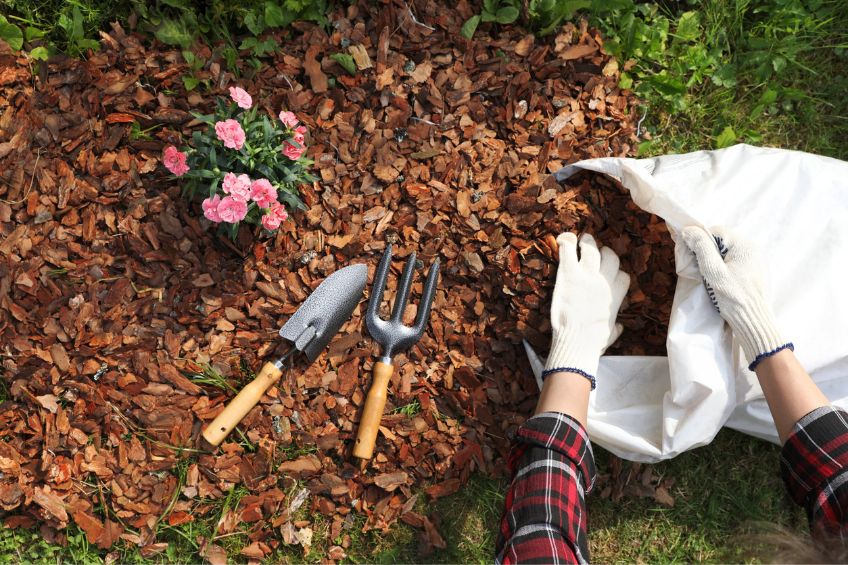

Mulch is great for gardens, especially in the dry desert heat, and it's one of the finest ways to preserve and help your garden thrive all summer. Mulch functions as a protective layer between plants and bare soil. This barrier can be made of a variety of decomposing organic materials, such as wood chips, pine needles, and straw, as well as non-organic elements like river rock, repurposed tires, and pebbles. Mulching, however, does more than merely improve the appearance of your yard.

Mulch serves as a barrier, keeping weeds and their seeds from receiving sunlight. For most weed seeds to sprout, sunshine is necessary. Your plants will have less competition for water and nutrients when weeds are removed. By limiting the amount of sunlight that the weeds receive, mulch serves as a barrier to prevent them from taking root.
Mulches, both organic and non-organic, cover the soil and reduce evaporation. In addition to saving you money on your water bill, mulch's capacity to hold moisture during hot, dry seasons helps prevent your plants from drying out.
Certain mulches, including cedar bark, have natural oils that work well as insect repellents. However, avoid packing the mulch up against plant stems or tree trunks as this can actually exacerbate insect and disease issues due to an abundance of moisture in these areas.
In addition to preventing soil nutrients from being washed out by rain, organic mulch enriches the soil with new nutrients. The organic materials in the mixture gradually break down and seep downward, continuously replenishing the native soil and giving plants the nourishment they require to flourish.
Mulching not only retains precipitation in your soil but also keeps it from washing your soil away. Mulch can accomplish this by decreasing the force that rain has on the soil when it hits it. Mulch helps prevent your garden from being completely ruined during prolonged downpours.
Adding organic material to your soil to create a mulch encourages earthworms to settle in. Because they enhance soil structure and nutrient cycling in the garden bed, earthworms are a great addition to any garden.
Never apply more than two to four inches of mulch to your garden as a general guideline. If you add too much, your beautiful plants will become dry and water won't be able to reach the soil. Lastly, apply mulch more sparingly to prevent drowning plant roots if you have drainage problems.
As you can see, mulching your garden has a lot of advantages. Spreading this rich, black combination around your garden will not only make your plants and veggies happy, but it will also give it a polished appearance that will make you the talk of the neighborhood.